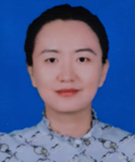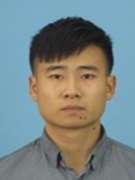
Prof. Rongshan Yu(SMIEEE, FIET)
Vice Director, National Institute for Data Science in Health and Medicine, Xiamen University
Dr. Rongshan Yu received his bachelor degree in Electrical Engineering with minor in Applied Mathematics from Shanghai Jiaotong University, China in 1995, and the PhD degree from the National University of Singapore (NUS, Singapore) in 2004. He is currently with the Department of Computer Science, Xiamen University as a professor, and vice-director of the National Institute for Data Science in Health and Medicine, Xiamen University. His research interests include high-throughput multi-omics data analysis, precision medicine, and medical artificial intelligence. He has more than 180 journal/conference publications and holds more than 20 US/International patents. Dr. Yu was a member of the Technical Committee of the Multimedia Systems and Applications of the IEEE Circuits & Systems Society, and chair of Internet of Thing (IoT) Special Interest Group (SIG) of IEEE Signal Processing Society. He served as standard project editors of ISO/IEC 14496-3/AMD.5 (MPEG Audio Scalable Lossless Coding) and ISO/IEC 14496-5:2001/Amd.10 (SSC, DST, ALS, and SLS reference software), and associated editors of IEEE Transactions on Audio, Speech and Language Processing and IEEE Access. He is a senior member of the Institute of Electrical and Electronics Engineers (IEEE), and Fellow of the Institution of Engineering and Technology (IET). In 2007, he received the National Technology Award, Singapore in 2007 in recognition of his contributions to international standards.
Prof. Yasukazu Nakamura (H-index: 66)
National Institute of Genetics
Professor Yasukazu Nakamura is a faculty member in Division of Informatics at National Institute of Genetics (NIG), part of The Research Organization of Information and Systems (ROIS) in Japan, where he leads the Genome Informatics Laboratory. His research focuses on the analysis and annotation of various genomes, the construction of genome databases, and the development of tools and workflows to enhance the quality of genomic data. He has played a crucial role in analyzing critical microbial, plant, and animal genomes, advancing our understanding of genetics at the molecular level. Professor Nakamura is also instrumental in managing the DNA Data Bank of Japan (DDBJ), a partner of the International Nucleotide Sequence Database Collaboration (INSDC), one of the world’s largest public repositories of genetic information. As Head of International Collaboration, he promotes the open sharing of nucleotide sequence data, ensuring DDBJ remains an invaluable resource for the global scientific community. According to Scopus, his genomics research includes 194 peer-reviewed papers and an h-index of 66. He is actively involved in international collaborations and partnerships, improving genome annotation accuracy, enhancing genome databases' value, and establishing standards for genome analysis and database development.
Previous Speakers
 |
 |
 |
| Prof. Yuan-Ting
Zhang City University of Hongkong |
Prof. Alexander
Suvoror Institute of Experimental Medicine, St. Petersburg |
Prof. David Zhang The Chinese University of Hongkong, China (Shenzhen) |
 |
 |
 |
| Prof.Tun-Wen Pai National Taipei University of Technology |
Prof. Dong-Qing
Wei
Shanghai Jiaotong University |
Prof. TSUI
Kwok-Wing Stephen The Chinese University of Hongkong |
 |
 |
 |
|
Prof. Cathy Wu |
Prof. Xuegong
Zhang |
Prof. Yi Pan |
 |
 |
 |
|
Prof. Bairong Shen Sichuan University |
Prof. Wing-Kin Sung The Chinese University of Hongkong, and Hongkong Genome Institute |
Prof. Chanchal Mitra University of Hyderabad |
 |
 |
 |
|
Assoc. Prof. Jie Zheng ShanghaiTech University |
Prof. Peiyu Zhang Henan University |
Prof. Zheng Zhou Chinese Academy of Sciences |
 |
 |
 |
|
Prof. Le Zhang Sichuan University |
Prof. Fei Guo Central South University |
Prof. Bin Liu Beijing Institute of Technology |
 |
 |
 |
|
Mr. Xiaoqiang Li China National GeneBank DataBase |
Prof. Guan Ning
Lin Shanghai Jiao Tong University |
Assoc. Prof.
Hon-Cheong So The Chinese University of Hongkong |
 |
 |
 |
|
Prof. Limsoon Wong (ACM Fellow) National University of Singapore |
Prof. Bing Zhang Shanghai Jiao Tong University |
Prof. An-Yuan Guo West China Hospital, Sichuan University |
 |
 |
 |
|
Prof. Pui-Chi Gigi Lo City University of Xiamen |
Asst. Prof. Mengsha Tong Xiamen University |
Prof. Jose Nacher Toho University |
